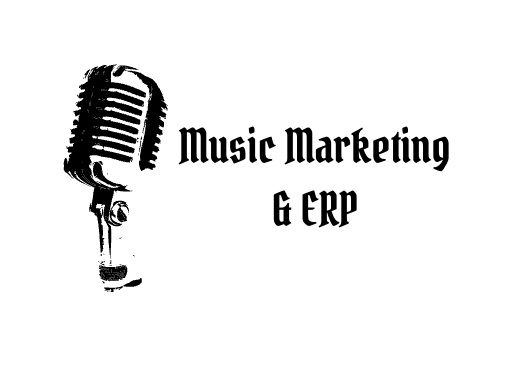The Synergy of Music Marketing and ERP
In music marketing, seamless coordination and efficient operations often orchestrate success. Enter Enterprise Resource Planning (ERP), a transformative tool that has become the behind-the-scenes software solution designed to integrate and streamline various organizational business processes.
Last week, I discussed how touring is a cornerstone for artists to connect with fans, measure their market share, and generate substantial profit. However, we must examine how Enterprise Resource Planning (ERP) systems are utilized in the music industry, showcasing its diverse applications and benefits for music marketers and their clients. The tool helps businesses identify challenges, discover opportunities, and make decisions that can impact their business.
“The primary objective of ERP is to enhance operational efficiency, reduce redundancies, and provide a unified platform for data management,” shares Enterprise Systems Specialist Sayam Basak.
As a booking agent, having worked at two of the largest talent agencies in the world, William Morris Endeavor and Creative Artists Agency in Los Angeles, I have used ERP for seamless coordination of logistics, ticket sales, and artist management. Since live events and concerts are integral to our business, ERP ensures that live performances execute flawlessly, contributing to the overall success of artists and promoters.
Merchandising is another significant revenue stream for artists. When partnering with merchandising companies like Bravado to sell merchandise at our venues, the vendors use ERP to manage inventory, sales, and distribution of artist merchandise. This ensures the artist's brand is well-represented and fans can access high-quality products.
ERP can also be integrated to analyze marketing metrics effectively, such as tracking the performance of online campaigns, understanding audience engagement, and optimizing marketing strategies for maximum impact.
These systems contribute to operational efficiency, data-driven decision-making, and enhanced collaboration within the music industry. As technology advances, ERP integration becomes increasingly essential for navigating the complexities of the music business and maximizing opportunities for artists, labels, and marketers alike.
In addition to my experience in using ERP for running music events, below are other ways in which industry professionals can use this tool:
ERP in music marketing facilitates a seamless supply chain, connecting artists, producers, distributors, and retailers. A prime example is the implementation of ERP by major record labels like Universal Music Group. By centralizing supply chain management, they enhance coordination between artists, optimize production workflows, and ensure timely deliveries to meet market demands.
Managing finances in the music industry can be complex, especially with royalties and diverse revenue streams. ERP systems, such as the one used by Warner Music Group, empower music marketers to navigate financial intricacies efficiently. They automate royalty calculations, track sales data, and provide a transparent financial landscape for better decision-making.
ERP solutions enable meticulous control over sales and distribution channels. For instance, Sony Music employs ERP to manage sales orders, monitor shipments, and analyze real-time sales performance. This strategic approach enhances their ability to respond to market dynamics and optimize distribution strategies.
With the digital era dominating music consumption, digital rights management is crucial. ERP systems, exemplified by the practices of independent music distributors like TuneCore, aid in tracking and controlling. digital rights. They ensure compliance with licensing agreements, protect intellectual property, and provide a secure environment for digital music content.
For record labels and artists, handling royalties is paramount. ERP systems contribute to a seamless royalty management process. For instance, Kobalt Music, a technology-driven music services company, leverages ERP to automate royalty calculations, ensuring that artists receive their fair share based on real-time data.
Takeaways
Marketers in the music industry embrace ERP to navigate the complexities of artist management, supply chain logistics, financial tracking, and beyond. ERP empowers marketers to make informed decisions, optimize resources, and respond nimbly to industry trends by centralizing data, automating tasks, and providing real-time insights.
According to the Epicor. software corporation, “ERP systems integrate into all areas and functions within an organization, with the primary purpose being to help leaders and managers better understand all moving parts of their operations, identify opportunities, and make more informed decisions that will ultimately have an impact on the future success and viability of their businesses.”
Marketers in the music industry embrace ERP to navigate the complexities of artist management, supply chain logistics, financial tracking, and beyond. ERP empowers marketers to make informed decisions, optimize resources, and respond nimbly to industry trends by centralizing data, automating tasks, and providing real-time insights.
A well-implemented ERP system can contribute to increased efficiency in operations, streamlined supply chain management, and improved financial tracking. ERP enables music companies to make informed decisions, optimize resources, and adapt to market trends by providing real-time insights into sales performance, royalty calculations, and economic data.
